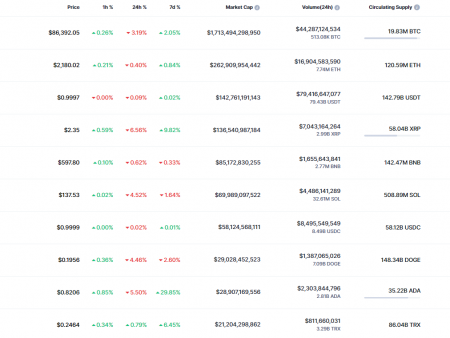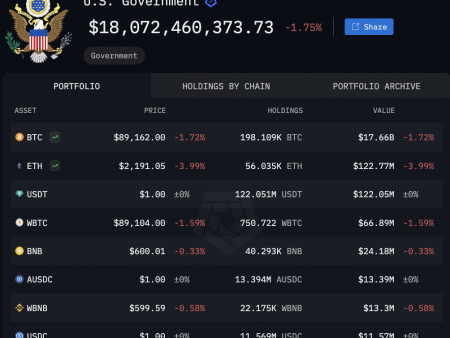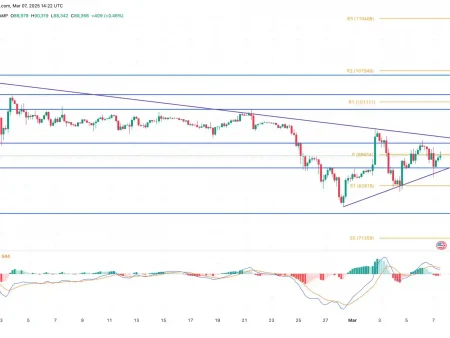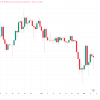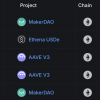Is the intersection of Mistral AI funding a glimpse into the future of decentralized finance and AI-based technologies?
Summary
Mistral AI, a French tech startup, recently closed a large funding round, raising €600 million (around $640 million). This financing, a blend of equity and debt, increased Mistral AI’s valuation to $6 billion.
BREAKING: Mistral raises $640 million Series B led by General Catalyst at $6 billion valuation.
Here’s their Seed pitch deck to remind you of their vision: pic.twitter.com/9N3jsMjAqC
— Chief AI Officer (@chiefaioffice) June 11, 2024
Founded just over a year ago, Mistral AI specializes in developing artificial intelligence models, similar to those used by industry leaders such as OpenAI, valued at over $90 billion.
These AI models, known for their applications in chatbots and other AI-based services, require large investments in advanced infrastructure, such as Nvidia’s high-performance semiconductors.
Mistral AI has attracted considerable attention and support, as evidenced by previous investments from major entities, such as Microsoft’s $16 million investment in February 2024.
Additionally, Mistral AI has taken steps towards openness and collaboration by releasing many of its AI models under open source licenses, allowing developers around the world to leverage and develop Mistral AI’s technology.
Beyond financial results, Mistral AI’s partnerships with cloud providers such as Microsoft Azure solidify its strategy to integrate AI solutions into diverse technology ecosystems and expand its global presence in the competitive AI market.
But what does this mean for the cryptocurrency market and why should you take notes? Let’s find out.
What impact does it have on cryptocurrencies?
Mistral AI’s recent funding round highlights the growing demand for advanced AI technologies, which align with the infrastructure needs of global cryptocurrency mining operations.
As AI models continue to evolve, requiring high-performance semiconductors and extensive data processing capabilities, the synergy with crypto mining, which also depends on powerful computing power and secure data management, becomes increasingly more evident. This commonality could lead to opportunities for resource sharing and collaboration between the two sectors.
At the same time, the integration of artificial intelligence with blockchain presents promising opportunities for cryptocurrencies. Blockchain’s decentralized structure and transparent ledger system provide solutions to challenges such as data security and transparency in AI applications.
This alignment not only improves the reliability of AI systems, but also spurs innovations in the crypto space, potentially improving efficiency and security across decentralized finance (DeFi) platforms.
Juan Leon, senior cryptocurrency research analyst, predicts the economic impact of this convergence, suggesting that AI and cryptocurrencies combined could contribute up to $20 trillion to global GDP by 2030.
In practice, Mistral AI funding is just a starting point that could accelerate developments in AI infrastructure, potentially increasing demand for computing power and data storage and aligning more closely with the similar needs of the cryptocurrency industry.
You might also like: The open letter warns about artificial intelligence and should also apply to cryptocurrencies
Giants that look and move
At the recent Cornell Blockchain Conference, Microsoft’s Yorke Rhodes discussed the evolving relationship between artificial intelligence and blockchain.
He hinted at the prospect of AI-based agents leveraging the capabilities of blockchain, signaling the early stages of exploration in this convergence.
Microsoft’s approach involves optimizing existing technologies rather than developing core blockchain infrastructure (L1). Rhodes cited their focus on improving efficiency, such as through layer 2 blockchain rollups, which streamline transactions and improve scalability.
Even industry voices, including Matt Stephenson of Pantera Capital, agree that cryptocurrencies support advances in artificial intelligence. Stephenson said cryptocurrencies could serve as a foundational infrastructure for AI models, particularly transformation and diffusion models.
These dynamics intensify with the role of OpenAI, recently involved in partnerships with Apple that could redefine industrial alliances.
Recent reports suggest the integration of OpenAI services into Apple products. Microsoft, a key investor in OpenAI, has been watching these developments closely.
The strategic implications for Microsoft are clear: a successful Apple-OpenAI alliance could potentially disrupt Microsoft’s AI initiatives, prompting a careful reevaluation of their competitive strategy in AI and cloud computing, and cryptocurrencies could become an assistant in this exercise.
The road ahead
As artificial intelligence and cryptographic technologies continue to evolve, their combined impact on global economies will likely be far-reaching. From improving operational efficiency to promoting innovation and economic growth, these technologies could reshape how companies and economies function and conduct business.
Furthermore, a technological rivalry is brewing between giants who may adopt various use cases of blockchain and artificial intelligence to become more competitive.
Microsoft is still reeling from the alliance between Apple and OpenAI, which could alter the dynamics at play, while Google watches from afar, making the interaction even more interesting.
It is fair to conclude that things are accelerating full force and the financing of Mistral AI is one of the starting points of a great reckoning that is yet to happen.
